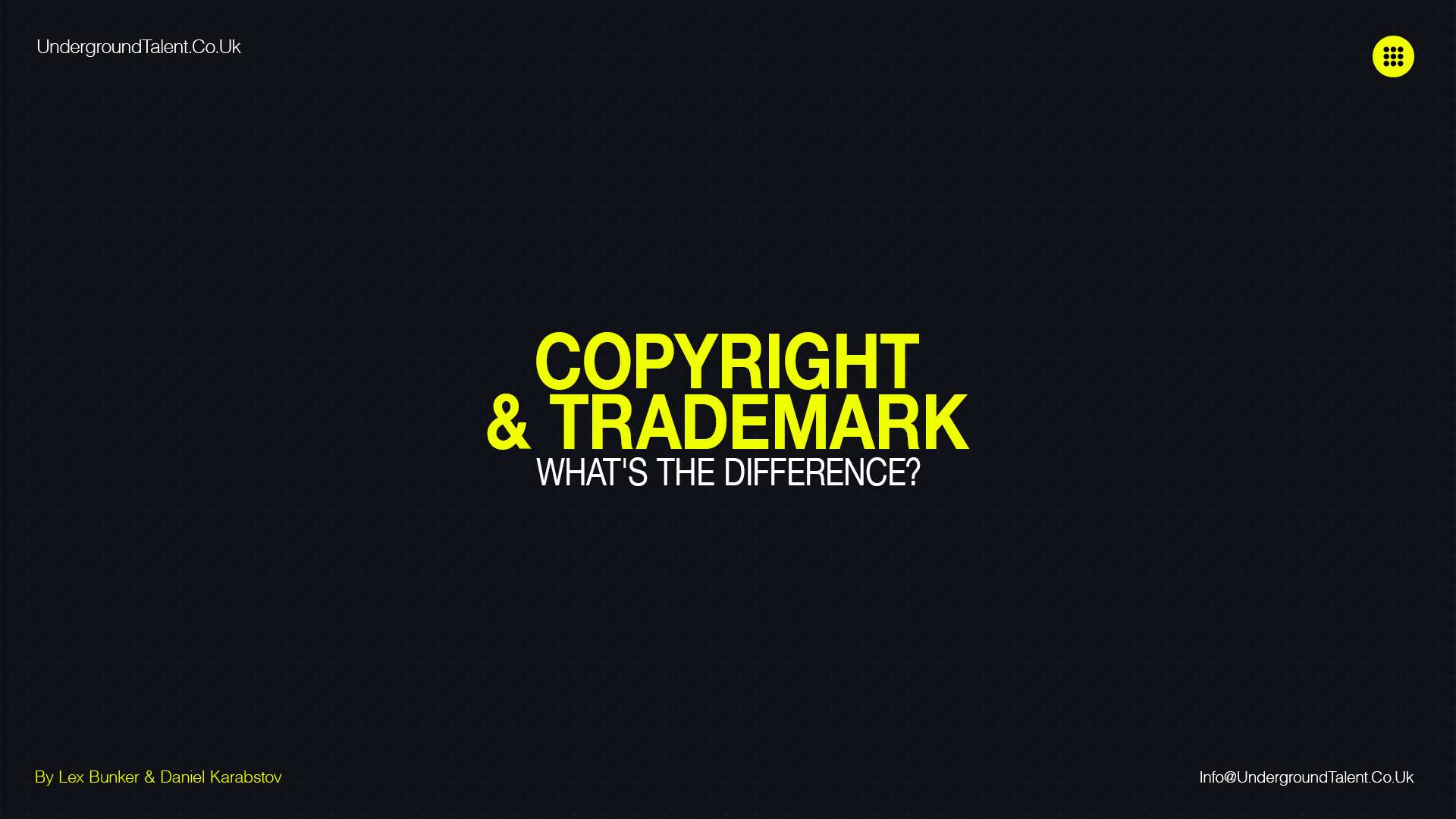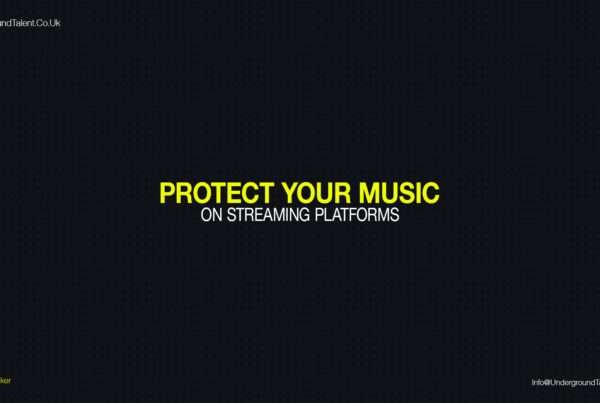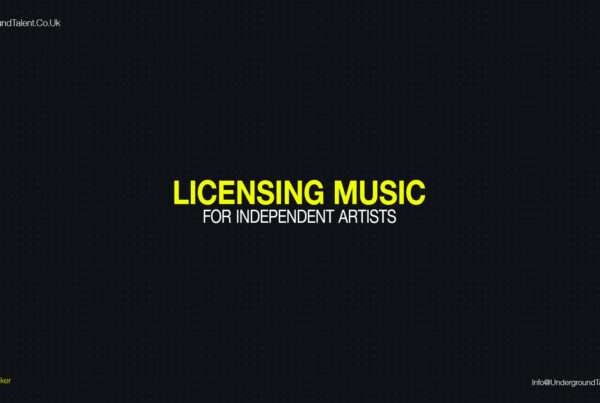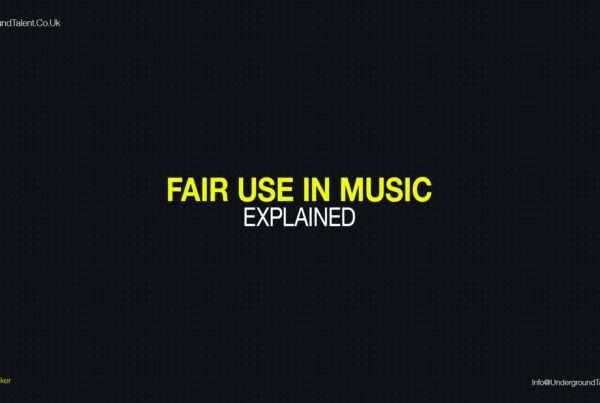Musicians often hear about copyright and trademark laws, but what do they really mean? Both are crucial for protecting your music and brand. This article will help you understand the key differences and why they matter to you.
Key Takeaways
- Copyright protects your original music, lyrics, and recordings.
- Trademarks protect your band name, logo, and brand identity.
- Copyrights last for a specific period, while trademarks can last indefinitely if renewed.
- Licensing your music allows others to use it legally while you earn money.
- Understanding these laws helps you protect your work and brand globally.
Understanding Copyright Law for Musicians
What Does Copyright Protect?
Copyright protects original works of authorship, including musical compositions, lyrics, sound recordings, and performances. Music copyright grants exclusive rights to the creators, allowing them to control the reproduction, distribution, and public performance of their works. This means that musicians and composers can license their works to others for specific uses, such as in films, commercials, and advertisements.
It’s important to note that there are often multiple copyrights to consider for every recording or performance, and these separate copyrights are often owned by different copyright holders. For more detailed insights, read Music Copyright Myths Debunked.
How Long Does Copyright Last?
The duration of copyright protection varies depending on the type of work and the country. Generally, for musical works, copyright lasts for the life of the author plus 70 years. For sound recordings, the duration can be different and is often shorter.
How to Register a Copyright
Registering a copyright is a straightforward process. Here are the steps:
- Complete an application form, which can usually be found on the website of the relevant copyright office.
- Pay the required fee.
- Submit a copy of the work you wish to register.
Once registered, the copyright holder has legal proof of ownership, which can be crucial in enforcing rights and seeking compensation for unauthorised use. For a comprehensive guide, check out How to Register Your Music Copyright in the UK.
Trademark Basics for Musicians
Difference Between Copyright and Trademark
Copyright and trademark serve different purposes. Copyright protects original works like songs and lyrics, while trademarks protect things like band names, logos, and phrases that help fans identify the source of the music. For musicians, understanding these differences is crucial to safeguarding their creative assets.
Benefits of Trademark Registration
Registering a trademark offers several benefits:
- It provides legal protection against others using your brand name or logo without permission.
- It helps in resolving disputes over band names, especially if the band changes members.
- It ensures accountability if others try to profit from selling counterfeit merchandise.
Trademark Infringement Consequences
Trademark infringement can lead to serious consequences. If someone uses your trademark without permission, you can take legal action to stop them. This might include sending a cease and desist letter or even going to court. Protecting your trademark is essential to maintaining your brand’s integrity and value.
For musicians, protecting your art is not just about the music itself but also about the brand and image you create around it. For more on this, visit How to Copyright Your Music.
Music Licencing and Trademarks
Licencing Music for Commercial Use
Licencing music for commercial use is crucial for content creators. It ensures they have the right to use music in their projects, like films, commercials, and videos. Copyright holders can grant permission for specific uses through licencing agreements, often seeking compensation for their work.
Trademark Symbols and Usage
In the music industry, trademarks protect things like band names, logos, and phrases related to specific song lyrics. These trademarks help fans and consumers identify the source of the music. For musicians or bands selling merchandise, trademarks are essential to prevent others from profiting through counterfeit products.
Music Merchandise and Trademarks
Trademarks are vital for musicians who sell merchandise. They ensure that only the trademark owner has the exclusive rights to use the name or logo in connection with their artistic works and performances. This helps protect the artist or band name from unauthorised use and ensures that fans get genuine products.
Trademarks in the music industry are not just about protecting names and logos; they are about maintaining the integrity and authenticity of the artist’s brand.
Enforcing Copyright and Trademark Rights
Cease and Desist Letters for Copyright and Trademark
A cease and desist letter is often the first step in enforcing your rights. This letter formally requests the infringer to stop their illegal activities. It outlines the specific actions that violate your copyright or trademark and demands immediate cessation. If the infringer complies, it can save both parties from costly legal battles.
Litigation for Copyright Infringement
When a cease and desist letter fails, litigation may be necessary. This involves taking the infringer to court to seek remedies such as damages or injunctions. Litigation can be lengthy and expensive, but it is sometimes the only way to protect your intellectual property.
Trademark Enforcement Strategies
Enforcing trademark rights often requires a multi-faceted approach. Here are some common strategies:
- Monitoring: Regularly check for unauthorised use of your trademark.
- Cease and Desist: Send letters to infringers as a first step.
- Legal Action: File lawsuits if necessary.
- Customs Enforcement: Work with customs to prevent counterfeit goods from entering the market.
Navigating the music industry requires an understanding of intellectual property protection, including music copyright, trademark registration, licencing, and enforcement.
By following these steps, you can better protect your creative works and brand identity in the competitive music industry.
International Considerations for Musicians on Copyright and Trademark
Copyright Protection in Different Countries
When it comes to copyright for performers, there are often multiple copyrights to consider for every recording or performance. These separate copyrights are often owned by different copyright holders. For example, a song might have one copyright for the lyrics and another for the music. Understanding the specific copyright laws in different countries is crucial for musicians who perform or distribute their work internationally.
Trademark Registration Abroad
Registering a trademark in your home country does not automatically protect it in other countries. Musicians should consider registering their trademarks in countries where they plan to perform, sell merchandise, or distribute music. This can help prevent others from using their brand without permission. The process and requirements for trademark registration can vary significantly from one country to another.
Cross-Border Enforcement Challenges
Enforcing copyright and trademark rights across borders can be challenging. Different countries have different laws and enforcement mechanisms. Musicians may need to work with legal professionals who specialise in international intellectual property law to navigate these complexities. Additionally, international treaties and agreements can sometimes offer protection, but they also come with their own set of rules and limitations.
Musicians, actors, directors, dancers, and other performing artists make their living from performing and recording works. Often, these performances use works created by another author who is not part of the performance. Understanding international copyright and trademark laws is essential to avoid legal issues and protect your creative work.
Conclusion to Copyright and Trademark
In summary, both copyright and trademark play crucial roles in protecting musicians and their work. Copyrights safeguard the actual music, lyrics, and recordings, ensuring that creators get credit and can control how their work is used. Trademarks, on the other hand, protect the names, logos, and symbols that represent the artist or band, helping fans identify their favourite music and preventing others from using similar branding. Understanding the differences between these two types of protection can help musicians better manage their careers and protect their creative efforts.
Frequently Asked Questions on Copyright and Trademark
What does copyright protect?
Copyright protects original works of authorship, such as songs, lyrics, and recordings. It ensures that only the creator has the right to reproduce, distribute, and perform their work.
How long does copyright last?
In most cases, copyright lasts for the lifetime of the creator plus an additional 70 years. After this period, the work enters the public domain.
What is a trademark?
A trademark is a symbol, word, or phrase that identifies and distinguishes the source of goods or services. In music, this can include band names, logos, and slogans.
How is a trademark different from a copyright?
While copyright protects creative works like music and lyrics, a trademark protects branding elements like names and logos that identify the source of those works.
Why should musicians register their trademarks?
Registering a trademark gives musicians legal protection against others using similar names or logos, which can help prevent consumer confusion and protect their brand.
What happens if someone infringes on a trademark?
If someone uses a trademark without permission, the trademark owner can take legal action, which may include sending a cease and desist letter or filing a lawsuit.
For more information on related topics, visit the Music Modernization Act on Copyright Laws.
Additional Resources
- Mixing Electronic Music: Fundamentals and Objectives
Electronic Music Promotion – Unlock Massive Growth with Hypeddit
Producing Techno? Get Your Free Sample Packs.
Dive into electronic music production with our newly released “Free Techno Tools V1” and “Free Techno Tools V2” sample packs. These packs are full of high-quality sounds that will add a professional touch to your tracks. If you’re looking to expand your sound library, these free sample packs are perfect for every techno fanatic. Click on the links below to access these fantastic resources and elevate your production game today!
Connect With Us.
Join our vibrant community for more wisdom and updates:
And Always Remember…
Have Fun & Be Creative!





